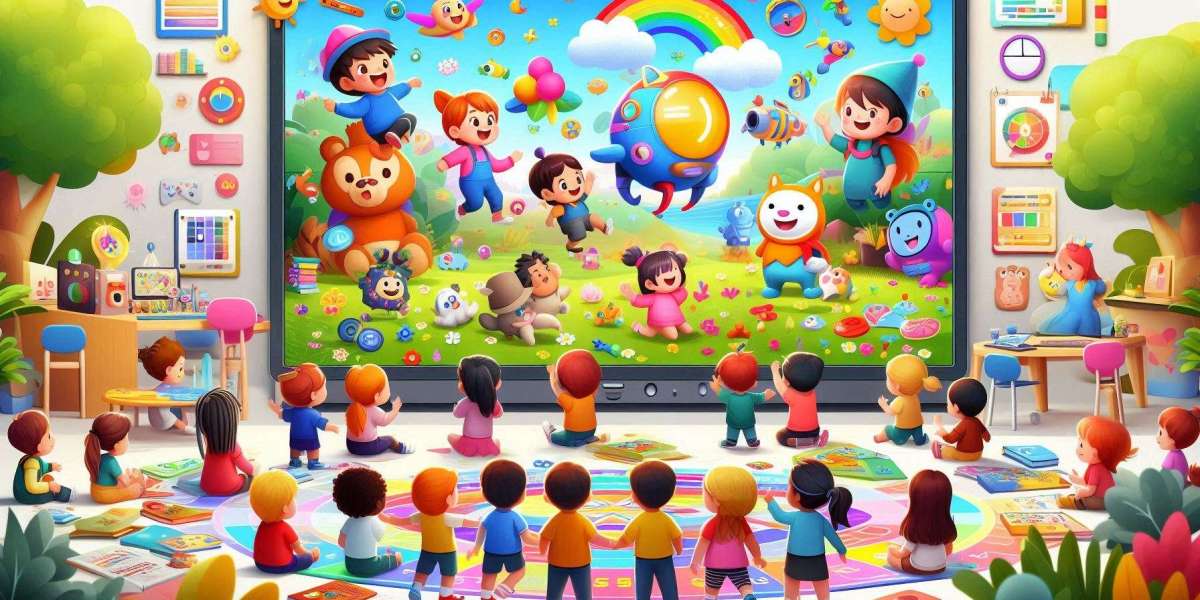Introduction
PBS Kids Games have become a staple in early childhood education, offering a wide variety of fun, interactive, and educational games for young learners. Designed to align with PBS’s mission of promoting learning through media, these games feature beloved characters from popular PBS Kids shows like Daniel Tiger’s Neighborhood, Sesame Street, Wild Kratts, and Curious George.
In this comprehensive guide, we’ll explore:
The benefits of PBS Kids Games
Popular PBS Kids games and their educational value
How to access PBS Kids games online and on mobile devices
Why PBS Kids games are a safe choice for children
Tips for parents to maximize learning through gaming
Whether you're a parent, teacher, or caregiver, this article will help you understand why PBS Kids Games are a fantastic resource for children’s entertainment and education.
Why PBS Kids Games Are Great for Children
1. Educational Value
PBS Kids Games are designed with input from child development experts to ensure they support key learning areas such as:
Literacy & Language – Games like WordGirl and Super Why! help kids build vocabulary and reading skills.
Math & Problem-Solving – Titles like Odd Squad and Cyberchase introduce basic math concepts in a fun way.
Science & Exploration – Wild Kratts and The Cat in the Hat Knows a Lot About That! teach kids about animals and nature.
Social-Emotional Learning – Daniel Tiger’s Neighborhood games help children understand emotions and social interactions.
2. Safe and Ad-Free Environment
Unlike many online gaming platforms, PBS Kids Games are completely free from ads and in-app purchases, ensuring a safe and distraction-free experience for young children.
3. Engaging and Interactive
With colorful animations, familiar characters, and interactive gameplay, PBS Kids Games keep children engaged while reinforcing educational concepts.
4. Accessibility
PBS Kids Games are available on multiple platforms, including:
Web browsers (via the PBS Kids website)
Mobile apps (iOS and Android)
Smart TVs and streaming devices
- Popular PBS Kids Games and Their Learning Benefits
Here are some of the most popular PBS Kids games and what children can learn from them:
1. Daniel Tiger’s Neighborhood: Play at Home with Daniel
Skills Developed: Emotional regulation, social skills, daily routines
Gameplay: Kids help Daniel with everyday tasks while learning about feelings and kindness.
2. Wild Kratts: Creature Power
Skills Developed: Biology, animal habitats, environmental awareness
Gameplay: Children explore different ecosystems and learn about animal adaptations.
3. Super Why! Reading Adventures
Skills Developed: Phonics, spelling, reading comprehension
Gameplay: Kids join Super Why and friends to solve story-based puzzles using reading skills.
4. Odd Squad: Odd Invasion
Skills Developed: Math, logic, problem-solving
Gameplay: Players use math to stop weird invaders in this fun, mystery-solving game.
5. Curious George: Banana 411
Skills Developed: Critical thinking, curiosity, basic science
Gameplay: George explores different environments while solving simple puzzles.
How to Access PBS Kids Games
PBS Kids Games are easily accessible across multiple devices:
1. On the PBS Kids Website
Visit pbskids.org/games
Browse games by show, topic, or skill
No downloads required—play directly in your browser
2. PBS Kids Games App (Mobile & Tablet)
iOS: Available on the Apple App Store
Android: Available on Google Play
Features offline play options for on-the-go learning
3. PBS Kids Video App
Includes a selection of games alongside full episodes of PBS Kids shows
Available on Roku, Amazon Fire TV, Apple TV, and more
Why Parents Trust PBS Kids Games
1. Developed by Education Experts
PBS collaborates with educators and child psychologists to ensure games align with early learning standards.
2. No Ads or In-App Purchases
Parents don’t have to worry about accidental purchases or inappropriate ads.
3. Encourages Positive Screen Time
Unlike mindless gaming, PBS Kids Games promote active learning and engagement.
4. Customizable Learning Experience
Parents can filter games by age, subject, and skill level to match their child’s needs.
Tips for Parents Using PBS Kids Games
Set Time Limits – Balance screen time with offline activities.
Play Together – Engage with your child to reinforce learning.
Discuss the Games – Ask questions like, “What did you learn today?”
Explore Different Games – Rotate between math, reading, and science games for a well-rounded experience.
Conclusion
PBS Kids Games provide a safe, fun, and educational way for children to learn while playing. With a wide variety of games covering literacy, math, science, and social skills, PBS Kids ensures that screen time is both engaging and beneficial.
By integrating these games into your child’s routine, you can support their learning journey in an interactive and enjoyable way. Visit pbskids.org/games today to explore the collection!
Final Thoughts
PBS Kids Games are more than just entertainment—they’re a powerful tool for early childhood education. Whether your child loves dinosaurs, math puzzles, or storytelling, there’s a PBS Kids game that will spark their curiosity and love for learning.







